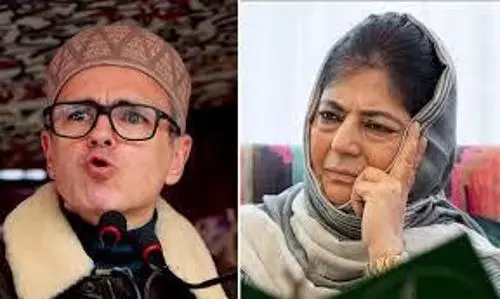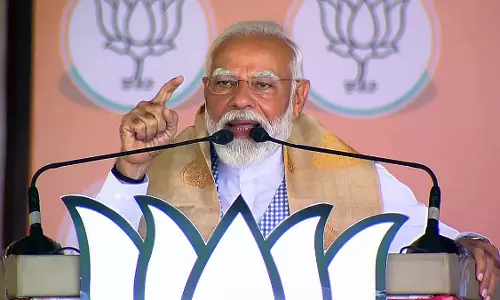
Abiy: Persistence in peace
text_fieldsIt is not rare for Nobel prizes to raise controversies – especially in literature and peace prizes. However, the most globally noted and debated prizes also are of these two domains. This year's prizes have triggered relatively less disputes, and most of them have been around literature Nobel. Due to the Swedish Academy itself getting embroiled in scandals, the literature Nobel of 2018 could not be awarded in time and that too was clubbed with the 2019 prize. Polish writer Olga Tokarczuk won the 2018 Nobel. Also an activist, Olga is a critic of Poland's right-wing government and has even faced death threats for that reason. After a beginning in poetry and later turning to novel, she looks at the human condition with empathy.
Many who view Olga's winning the prize as well deserved, however disapprove of the winner of the 2019 literature Nobel. And with reasons. The Swedish Cademy which picked Austrian novelist and playwright Peter Handke for the award, cited his linguistic felicity as basis for their selection. But that leaves a relevant question what sensibility is rendered by the 'human experience' unravelled through that language. Critics point their fingers of blame at the ideas and worldview represented by his work, beyond the linguistic marvel. His ideas are reactionary and divisive. Handke is one who not only justified racial genocide, but even praised former Serbian president Slobodovan Milosevic who was punished for massacres, and Handke reverentially took part in his funeral rites too. He is a writer who endorses the Serb propaganda that the genocide that was committed in 1995 in Srebrenica did not happen at all, and thus he becomes one who composes justification for the worst massacre that happened in recent European history. Naturally, no few writers opine that however meritorious be his literary works, the moral depravity of his attitude was sufficient reason to deny him the award.
The Linerature prizes being as they are, what makes this year's Nobel Peace Prize widely acceptable is the exact opposite of the rationale of awarding a writer with no qualms about ratifying bloodshed which thereby depreciates the value of the Nobel. The hundredth Nobel Peace Prize went to Ethiopian prime minister Abiy Ahmed Ali who raised the flag of unity against the orgy of divisive violence. Until the declaration of the prize, he had not even found find a place in the forecasts. Many including the 16-year old Greta Thunberg, who had sparked the world's conscience in the era of climate crisis, had figured in specilations. And there were those like Donald Trump who had indicated that he was entitled to it. In spite of all that, when finally the winner was anounced, there were not many to be surprised. One who patched up decades-long border disputes within months of taking office, and who gradually espoused the concept of human unity beyond all political differences, Abiy deserved the award much more than many of the earlier winners. It was after overcoming many hurdles and much opposition that he signed a peace treaty with neighbouring Eritrea, ending the war that lasted two decades. The lesson he imparted through this is that in this era what takes courage is not waging war but establishing peace.
Abiy's diplomacy has much to be emulated by many neighbouring countries, including India and Pakistan, who keep the war-front live for political propaganda. The war between Ethiopia and Eritrea has taken large number of lives. But the history of the two is one of sharing the same kind of culture and language. When politics and divisive sentiments took over, they became enemies. A war that led even to the murder of relatives, killed 80,000 within two years. That enmity, in more or less degree, lasted 20 years – a situation in which even if people would get fed up with tribal spite, exploitative politics would again keep the battle-front busy. It was by overpowering all this, and by embracing the popular aspirations and even disowning his own party men that Abiy became a popular leader and showed the courage to enter into a friendship treaty with Eritrea within hundred days. That day when the telephone links were re-established between the two countries, people from both sides were celebrating it by calling 'hello'. Relatives greeted each other cutting borders. Even though problems and complexities linger, this very attitude is a rare model. And when Abiy took a bold decision to concede a disputed land in the border, he was just three months into prime ministership. He proved thereby that space and politics are subject to people's interest, thus symbolising a spirit of humanity that is fast disappearing from current times. Thus viewed, what is this year's Nobel Peace Prize epitomises is nothing but the spirit of the world's conscience against discord.























